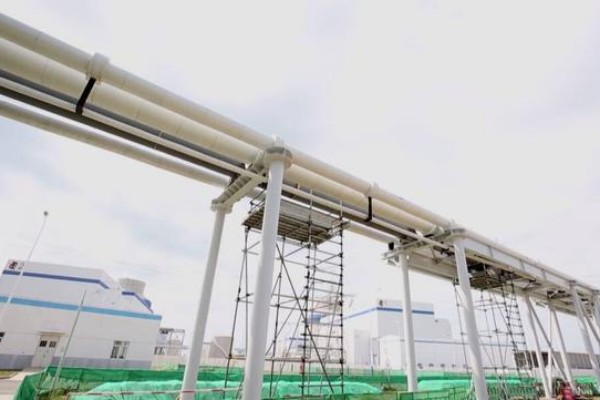Yantai building low-carbon future
Updated : 2021-10-21
(chinadaily.com.cn)
Zheng Deyan, mayor of Yantai, discussed the city's clean energy accomplishments and future goals at the 2021 Carbon Emission Peak and Carbon Neutrality Yantai Forum in Yantai, East China’s Shandong province on Oct 19.
Zheng said that Yantai has its advantages when it comes to contributing to China's target of peaking carbon dioxide emissions before 2030 and achieving carbon neutrality before 2060 ever since the city has taken the lead in the clean energy industry in Shandong.
As a pioneering city for green and low-carbon development in Shandong, Yantai has been making efforts to promote the growth of the clean energy industry in recent years.
Yantai has achieved remarkable development in nuclear power, wind power, solar power, and biomass power generation industries.
By the end of last year, the installed capacity of clean energy in Yantai exceeded 8.5 million kilowatts, which accounted for 45.5 percent of the city's total installed power capacity and one-fifth of Shandong province's installed clean energy capacity.
The figure in the city is expected to reach 130 million kilowatt-hours by the end of the 14th Five-Year Plan (2021-25).
Yantai has the country's first commercial nuclear heating project as well as an offshore wind power industrial park project. The Haiyang nuclear heating project has a heating capacity of 4.5 million square meters, making Yantai the country's first "zero-carbon" heating city.
In 2020, the city's GDP hit 786.4 billion yuan ($122.91 billion) with a ranking of 25th in China. During the 13th Five-Year Plan period (2016-20), the city’s output of strategic emerging industries grew at an average annual rate of 10 percent.
According to Zheng, the city's energy consumption per 10,000 yuan of GDP has decreased by 17.6 percent and the proportion of major chemical industries in traditional industries has been gradually decreasing, which demonstrates that the city has paved a typically low-carbon transformation path in northern China.
In the future, Yantai will integrate carbon sequestration, data, finance, tourism and people's wellbeing to build itself into China's first international zero-carbon ecological hub.

A technology demonstration project that produce water and heat without consuming energy or producing carbon is put into operation in Haiyang, a county-level city in Yantai on May 11. [Photo provided to chinadaily.com.cn]

